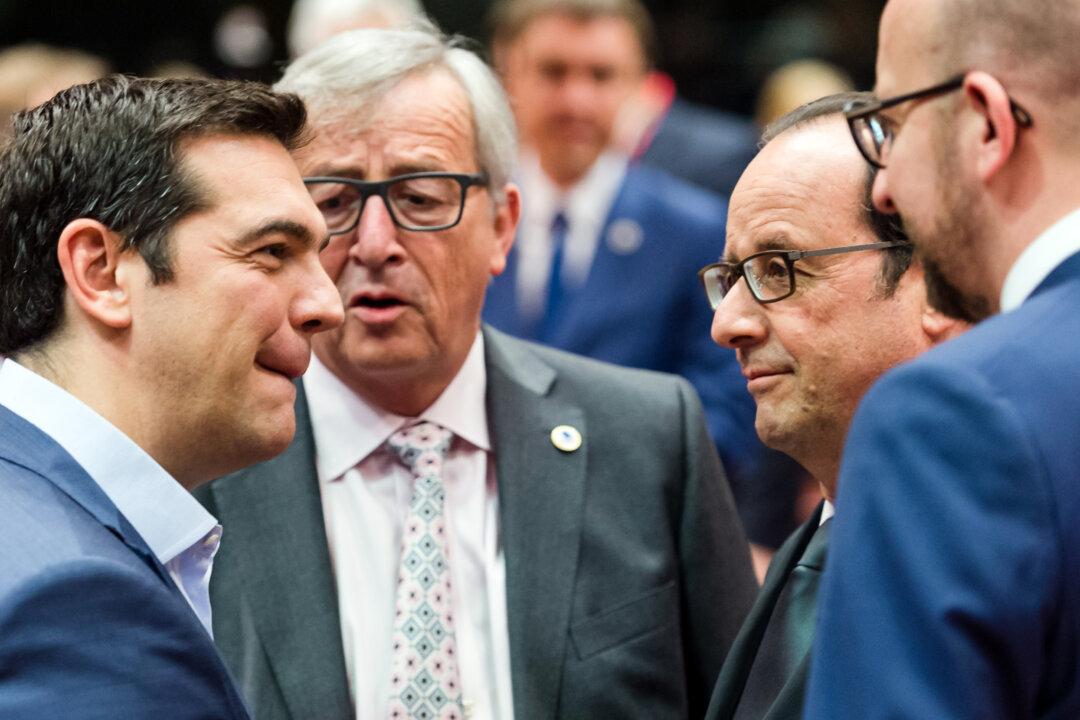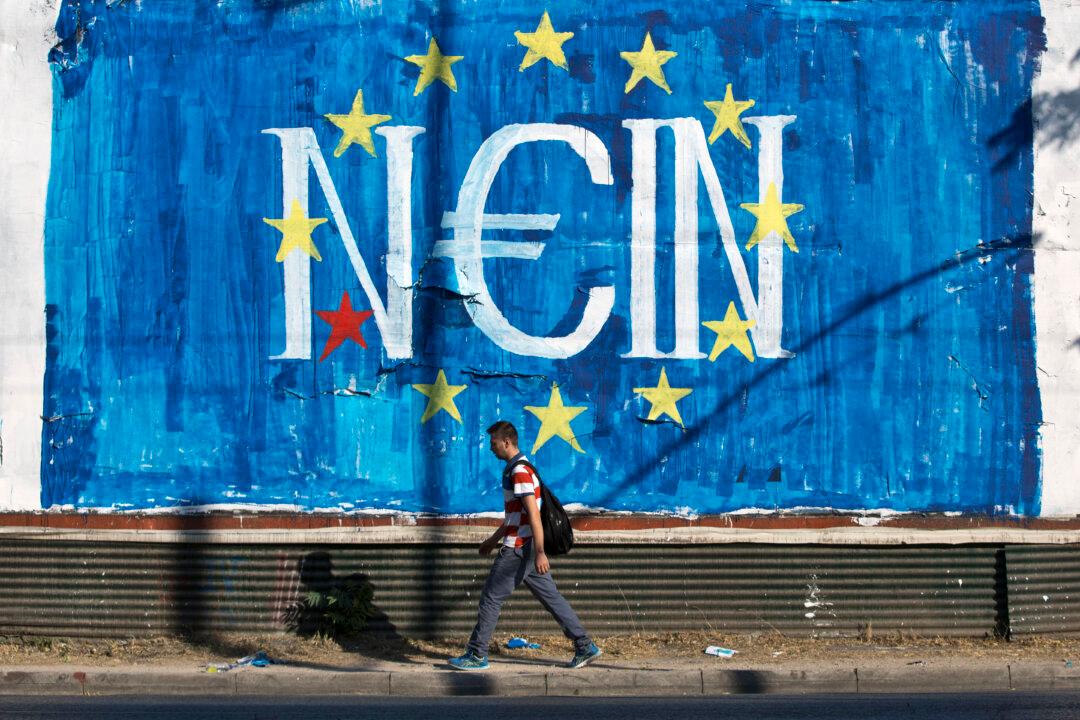Focus
Greek bailout
LATEST
Why Leaving the Euro Is Back on the Agenda in the Greek Election
While the allure is there, a Greek exit from the European Union is unmistakably a bad idea.
|
Europe’s New Economic Divide
Europe still wrestles over how to resolve the debt crisis in Greece. The managing director of the International Monetary Fund warned this month that Greece’s debt remains unsustainable, and she urged the country’s European partners to prepare to provide significant relief. “Few voters anywhere in Europe are excited about bailing out Greece’s government,” writes Chris Miller, Yale doctoral student and a research associate at the Hoover Institution. He points to an east-west divide in addition to the north-south one. Countries in Western Europe that provide generous social programs with high ratios of debt to GDP, are generally less critical of Greece, fearing that they, too, might need bailouts someday. The former socialist countries in Eastern Europe like Poland, Estonia, Latvia and Slovakia are less wealthy than Greece and less sympathetic. Europe’s politics are becoming divided in more ways than one.
|
Germany Profits From Greece’s Hardships
As Greeks suffer in multiple ways the effects of the economic crisis their country is going through, Germany has profited handsomely from the Greek crisis.
|
Greek Leader Seeks to Quash Rebellion With Party Vote
Greek Prime Minister Alexis Tsipras called for a vote within his party to decisively sideline rebels opposed to the rescue deal.
|
Greece Enters Uncharted Territory After Referendum ‘No’ Vote
With about a quarter of the votes counted Sunday evening, the Interior Ministry issued an official projection that the “no” side would win handily.
|
Meet the Protagonists in the Greek Bailout Drama
Even if the policy talk can be deadening, the main protagonists in the Greek bailout drama have brought their big, sometimes oversized, personalities to the negotiating table.
|
Why Leaving the Euro Is Back on the Agenda in the Greek Election
While the allure is there, a Greek exit from the European Union is unmistakably a bad idea.
|
Europe’s New Economic Divide
Europe still wrestles over how to resolve the debt crisis in Greece. The managing director of the International Monetary Fund warned this month that Greece’s debt remains unsustainable, and she urged the country’s European partners to prepare to provide significant relief. “Few voters anywhere in Europe are excited about bailing out Greece’s government,” writes Chris Miller, Yale doctoral student and a research associate at the Hoover Institution. He points to an east-west divide in addition to the north-south one. Countries in Western Europe that provide generous social programs with high ratios of debt to GDP, are generally less critical of Greece, fearing that they, too, might need bailouts someday. The former socialist countries in Eastern Europe like Poland, Estonia, Latvia and Slovakia are less wealthy than Greece and less sympathetic. Europe’s politics are becoming divided in more ways than one.
|
Germany Profits From Greece’s Hardships
As Greeks suffer in multiple ways the effects of the economic crisis their country is going through, Germany has profited handsomely from the Greek crisis.
|
Greek Leader Seeks to Quash Rebellion With Party Vote
Greek Prime Minister Alexis Tsipras called for a vote within his party to decisively sideline rebels opposed to the rescue deal.
|
Greece Enters Uncharted Territory After Referendum ‘No’ Vote
With about a quarter of the votes counted Sunday evening, the Interior Ministry issued an official projection that the “no” side would win handily.
|
Meet the Protagonists in the Greek Bailout Drama
Even if the policy talk can be deadening, the main protagonists in the Greek bailout drama have brought their big, sometimes oversized, personalities to the negotiating table.
|






